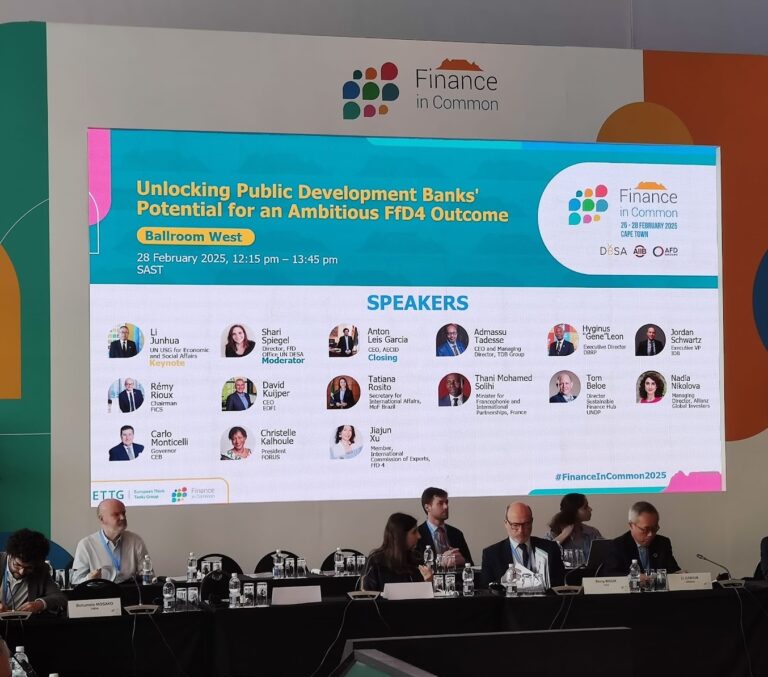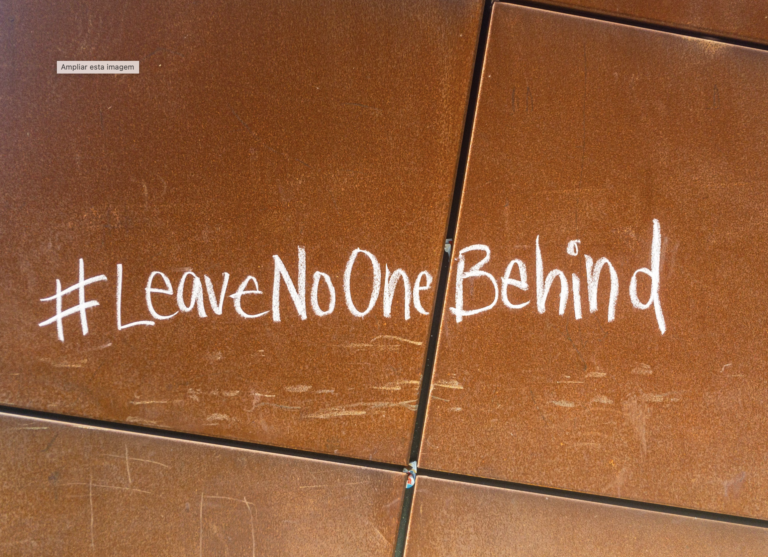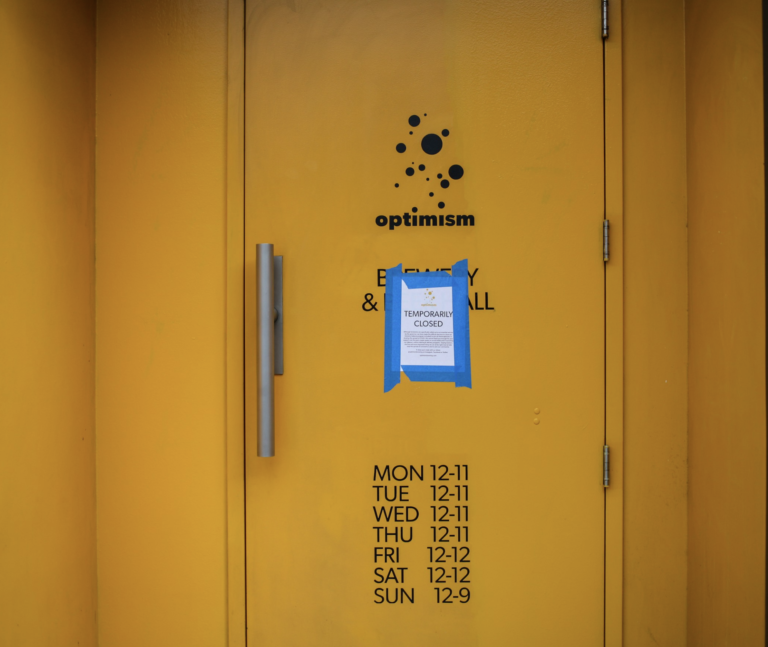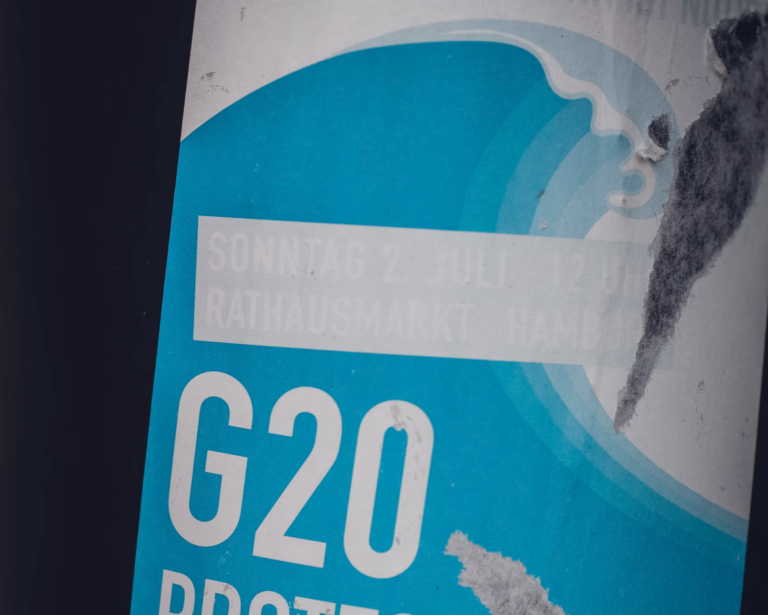
ETTG at the 5th Finance in Common Summit (FICS) – Cape Town
The ETTG Secretariat (Daniele Fattibene) and members (ECDPM, IDDRI, and ODI Global) were actively involved in the 5th Finance in Common Summit (FICS) in Cape Town, South Africa. The event ran alongside the G20 finance ministers meeting and brought together over 2,500 participants representing more than 530 Public Development Banks



